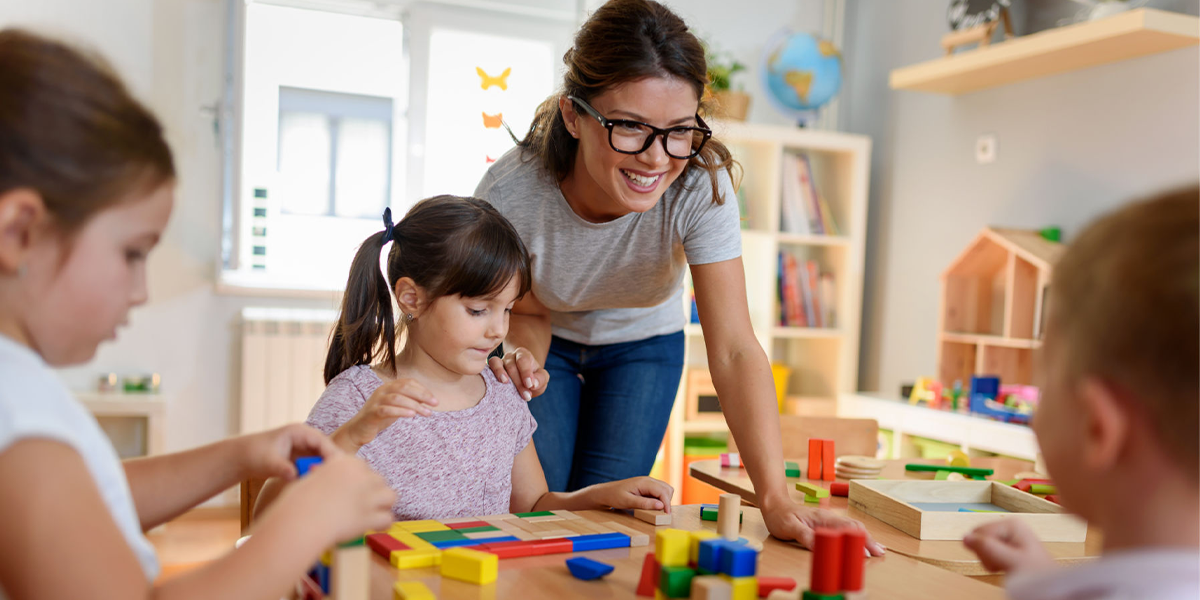Did you know that 90% of a child’s brain development occurs in the first five years of their life?
And that those formative years are critical for emotional, intellectual and creative development that sets a child up for life?
When you put it that way, that makes early-childhood education one of the most important careers out there.
But in Australia, early childhood education remains one of the most in-demand occupations with a supply of early childhood educators severely lacking.
In fact, the federal government recently announced early childhood education is the fifth most in-demand occupation in Australia, ahead of physiotherapists (17th), doctors (15th), civil engineers (13th), electricians (12th) and ICT business and systems analysts (9th).
According to The Mandarin, the estimated shortage of early childhood educators was 16,000 in May this year.
So what’s behind the dire skill shortage of workers in an occupation that plays such a vital role in a child’s life?
Experts say it’s being driven by three key challenges: an increased demand for services, poor value proposition and an ageing workforce.
So if an ageing workforce is a barrier, what if we turned to Gen Zs to plug the skills shortage?
When we asked almost 400 young Australians what they thought about early childhood education, just under half (50%) said their opinion was ‘positive’ or ‘very positive’. Thirty-eight percent said they felt neutral about the early childhood education industry, while just 12% said they felt ‘negative’ or ‘very negative’.
However.
When we asked Gen Zs what the likelihood is that they’ll pursue a career in early childhood education, 79% per cent said ‘unlikely’ or ‘definitely not’, while 13% said they were neutral. Only 8% said ‘likely’ or ‘definitely’.
So we followed up, and asked them what would stop Gen Zs from pursuing a career in early childhood education.
While almost half (49%) said it was because the salary wasn’t competitive, many said it was because they’d heard negative things about becoming an early childhood teacher or educator (29%), that they didn’t know what the career opportunities were (17%) or that they didn’t know where to start in terms of getting the right qualifications (10%).
“Media coverage seems to be rather negative towards the situation, highlighting the lack of pay, leave etc, and I haven’t taken time to research the reality of this industry for myself, through genuine sources, so my opinion is rather vague,” a 19-year-old male from Victoria told us.
“The industry appears to be stressful, overwhelming and lacks the flexibility we desire to have. I feel it’s viewed in the public eye as a service, to look after your children, for as little as possible, rather than individuals caring for and teaching young children the skills and mindset they need for this time in their lives.”
A 20-year-old female from Western Australia told us the conflict she was dealing with about working in early childhood education.
“I believe that the early childhood education industry is incredibly important and attractive,” she said.
“It’s incredibly impactful on everyone, we’ve all been educated as children, and it’s helped to shape us into the people we are today. I personally believe it would be an incredibly rewarding industry to work in and have always had a passion for childcare and education.
“However, I decided not to follow this career choice when deciding what further education to undertake as I thought that teaching doesn’t have the same financial support as my current degree could potentially give me from the job I find in that industry. I also felt a bit of a stigma around teaching and chose to do a more basic, ‘academic’ degree instead. To be honest I regret the decision, about to graduate from my undergrad I am certainty still considering changing career paths to early childhood education.”
However not all young people are deterred.
“I would love to be working with children, all different kinds of them – disabled, Aboriginal, Islander & many more different backgrounds – they each have their own story and differences and that’s what makes them so beautiful,” an 18-year-old female from Victoria told us.
“Also it takes one person to make a big impact in these young children’s lives. For example my kinder teacher I will never forget her, until this day and age she honestly made a very big impact in my life. I would love to see the children’s beautiful smiles, talents and learn about them and their interests while sharing mine.”
So to set the record straight and help connect Gen Zs with the early childhood education industry, we teamed up with the Department of Education and Training Victoria to create the free online Serious About Play course where young Australians can learn about:
- Why they’d be a great fit for early childhood education.
- What soft skills are useful in this sector and how to develop them.
- The degrees, certifications and checks they’ll need to start your career.
And much more.
Know a young person who you think could make a career out of early childhood education? Swing them the link to Serious About Play. Check out the course overview here.






